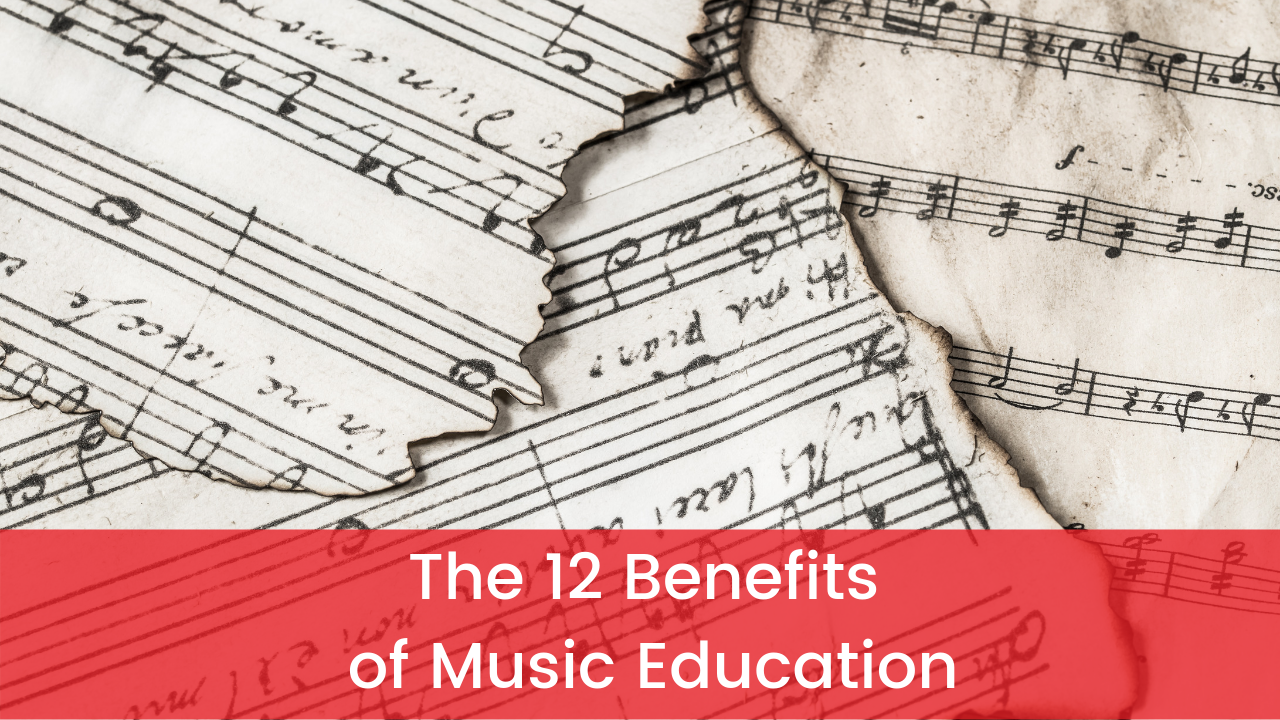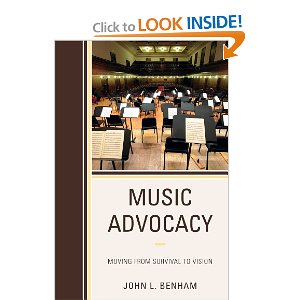The 12 Benefits of Music Education

“Musical training is a more potent instrument than any other because rhythm and harmony find their way into the inner places of the soul.” - Plato.
- Music education in the early years helps develop brain areas involved in language and reasoning. It is thought that brain development continues for many years after birth. Recent studies have indicated that musical training physically develops the part of the left side of the brain involved with processing language. Music education can wire the brain’s circuits in specific ways. Linking familiar songs to new information can also help imprint information on young minds.
- There is also a causal link between music and spatial intelligence (the ability to perceive the world accurately and form mental pictures of things). This kind of intelligence, by which one can visualize elements that should go together, is critical to the thinking necessary for everything from solving advanced mathematics problems to being able to pack a book bag with everything that will be needed for the day.
- Students of the arts learn to think creatively and solve problems by imagining various solutions and rejecting outdated rules and assumptions. Questions about the arts do not have only one correct answer.
- Recent studies show that students who study the arts are more successful on standardized tests such as the SAT. They also achieve higher grades in high school.
- A study of the arts provides children with an internal glimpse of other cultures and teaches them to be empathetic towards the people of these cultures. This development of compassion and empathy, as opposed to the development of greed and a “me first” attitude, provides a bridge across cultural chasms that leads to respect for other races at an early age.
- Students of music learn craftsmanship as they study how details are put together painstakingly and what constitutes good, as opposed to mediocre, work. When applied to a student’s work, these standards demand a new level of excellence and require students to stretch their inner resources.
- In music, a mistake is a mistake; the instrument is in tune or not, the notes are well played or not, and the entrance is made or not. It is only by much hard work that a successful performance is possible. Students learn the value of sustained effort to achieve excellence and the concrete rewards of hard work through music study.
- Music study enhances teamwork skills and discipline. For an orchestra to sound good, all players must work together harmoniously towards a single goal, the performance, and commit to learning music, attending rehearsals, and practising.
- Music provides children with a means of self-expression. Now that there is relative security in the basics of existence, the challenge is to make life meaningful and reach for a higher stage of development. Everyone needs to be in touch at some time in his life with his core, with what he is and what he feels. Self-esteem is a by-product of this self-expression.
- Music study develops skills that are necessary for the workplace. It focuses on “doing,” as opposed to observing, and teaches students how to perform anywhere in the world. As described above, employers are looking for multi-dimensional workers with the flexible and supple intellects that music education helps create. Students can also learn to better communicate and cooperate in the music classroom.
- Music performance teaches young people to conquer fear and to take risks. A little anxiety is a good thing and something that will often occur in life. Dealing with it early and often makes it less of a problem later. Risk-taking is essential if a child fully develops their potential.
- An arts education exposes children to the incomparable.
Carolyn Phillips is the author of the Twelve Benefits of Music Education. She is the Former Executive Director of the Norwalk Youth Symphony, CT.
Have a look at this YouTube Video: A case for Music Education in our Schools
Check out also the book Music Advocacy Resource by clicking the image below.
Looking for more time-saving, engaging resources?
Check out MTR’s collection of music teaching materials - SHOP the MTR Store or our store on TpT.
Would you like more music teaching strategies? Check out these related posts to keep your lessons fresh and interactive!
Blog Post: Teaching Rhythm in Music
Blog Post: 5 Call-and-Response ActivitiesTo Keep Your Music Class Engaged
Blog Post: Benefits of Body Percussion Activities
Blog Post: Energize Your Music Classroom With a Fun Rhythm Reading Game
Blog Post: Teaching Music Notation: Fun and Effective Strategies
Blog Post: Giant Staff Jumping Game: Easy Adaptations for Every Grade Level
Blog Post: Benefits of Color-by-Music Activities
Blog Post: 11 Proven Strategies to Keep Students Engaged During Music Rehearsals
Blog Post: Planning a Successful Lesson
MTR 12-Month Memberships
Save time and inspire your students with a growing collection of music-teaching resources!
Subscribe to one of the MTR 12-Month Memberships for Music Teachers today.
Click HERE for more information!
Sign up to receive the monthly MTR newsletter and gain exclusive access to the
FREE Resource Library for music teachers!



